Our B Corp Recertification & Cultivating a Thriving Food System
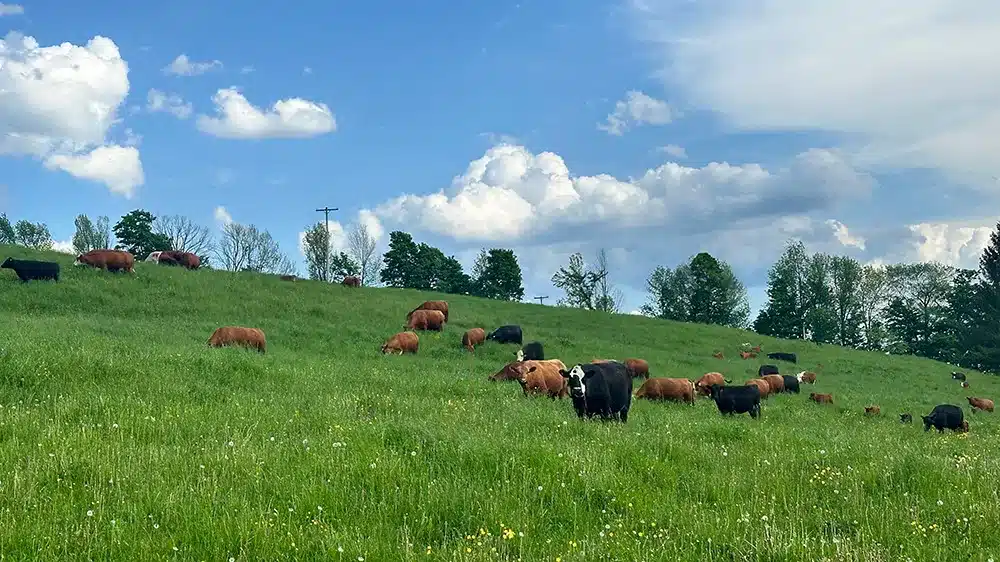
Where we started
Eleven years ago, we set out on a mission to raise the bar for meat and cultivate a thriving food system from the ground up.
A food system that’s healthier in every way – for animals, farmers, and your family.
We wanted to prove that local, regenerative farming could work—not just as a niche alternative, but as the foundation of a new way to eat and live.
We built relationships with suppliers doing things the right way.
We connected rural communities to urban ones.
We fought to make regenerative actually viable, not just idealistic.
And along the way, we pushed ourselves to do more to serve our members better—adding lamb to shares, bringing small-scale processing back to Vermont, expanding to New York, then to Pennsylvania, launching Walden Reserve, and giving members more ways to buy what they love with à la carte options.
And at the heart of it all? Independent family farmers doing it right.
Farmers who share our commitment to regenerative agriculture, animal welfare and simply doing things the Walden way.
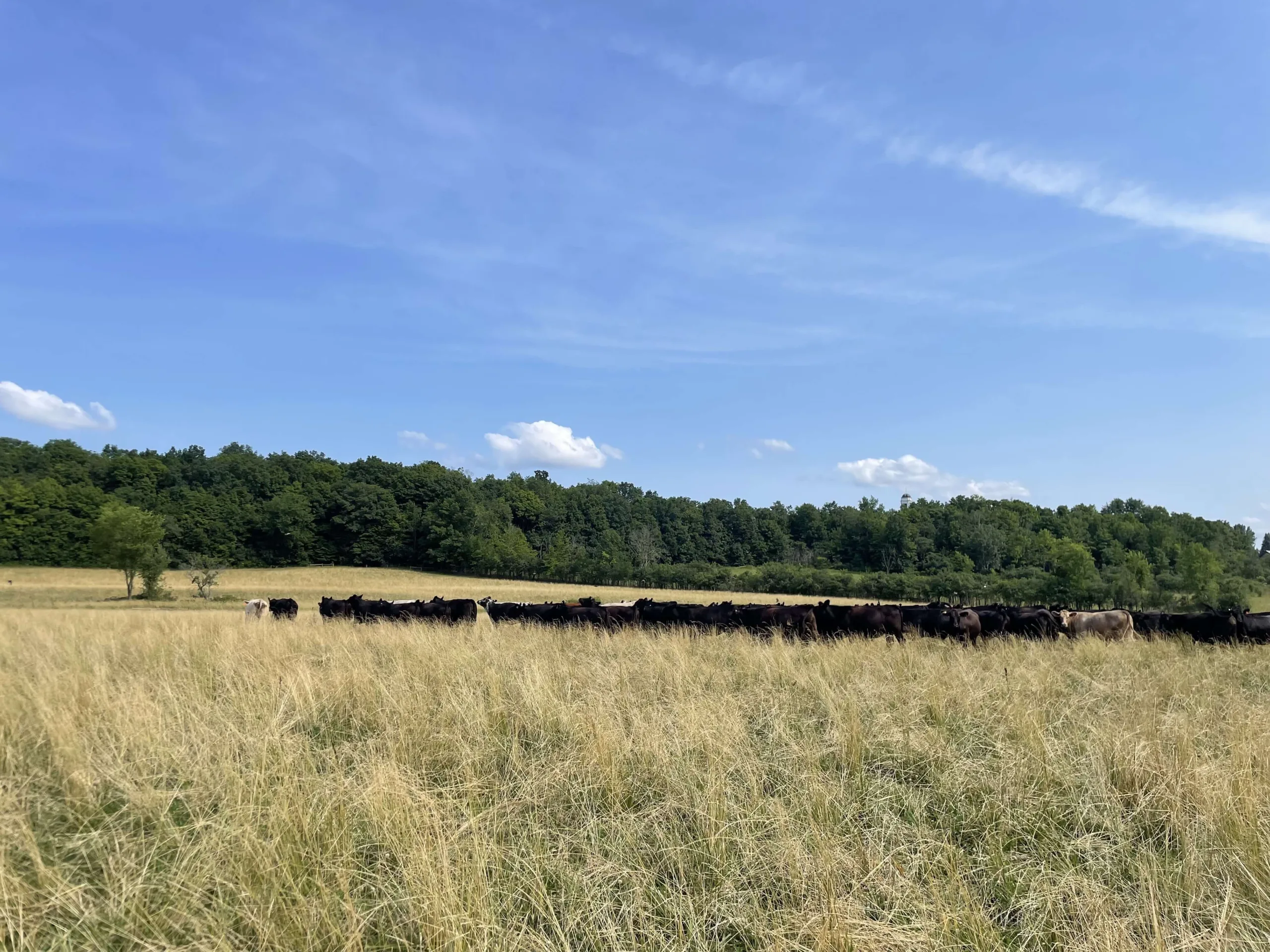
Doing it the Walden Way
The Harrness Family, Newbury VT
Riley Harrness dove headfirst into agriculture five years ago and never looked back. When COVID hit, the Harrness family built a chicken coop, bought a few pigs, and started their journey into farming. With their boys being homeschooled and Riley’s wife, Rachel, taking eight weeks off, they had the time to fully commit. But farming wasn’t new to Riley—his family had been in the dairy business for years, and he grew up surrounded by cattle. Now, he’s carrying on that tradition in his own way.
For Riley, farming started as a way to support his kids’ passions. His daughter loves animals, and his son has always dreamed of becoming a beef farmer. That was all the motivation they needed. Farming gives their family the freedom to live the life they love, which includes showing horses and traveling across the country. Riley even got back into riding in 2021, reconnecting with the same trainer he had as a kid.
On their farm, they raise hogs, laying hens, meat birds, and Nigerian Dwarf goats, along with a small herd of beef cattle. They let their kids have a say in which breeds of chickens they keep, adding an extra layer of fun to the operation. Every aspect of their farm is run with care and attention to the land and animals. They spread manure on local hay fields, naturally fertilizing their feed crops, and their livestock is antibiotic-free. During the summer, the animals are pastured, and in the winter, they’re kept warm with deep bedding. Riley even designed his own custom feed with a local farmer to provide high-quality nutrition—without the unnecessary price tag of a non-GMO certification. Seasonal treats like pumpkins and leftover watermelon keep things interesting.
But farming isn’t always easy, especially in the winter. While frozen ground is a relief from the mud, harsh weather slows down animal growth and drives up feed costs. What normally takes a week to gain in weight can take a month in the cold. Water lines freeze, unexpected breakdowns happen, and keeping everything running smoothly requires nonstop effort. But through it all, the Harrness family pushes forward, committed to raising healthy animals the right way.
It’s truly a family-run farm, with Riley, Rachel, and their three kids—Dakota, Landon, and Iliana—at the heart of it. Rachel’s uncle helps with trucking, and close family friends pitch in when needed. They started with just $7,000 and a vision, and today, they’re living their dream of operating a successful regenerative farm. Whether it’s sorting and scaling pigs at 4 a.m. or unloading an 18-wheeler alongside his daughter, Riley is teaching his kids what it means to work hard and take pride in where their food comes from. And that’s what it’s all about.
Raising the bar
Our commitment to these independent farmers and to building a thriving food system earned us our place as a B Corporation, a certification we’ve proudly held since 2017.
Now, as we complete our third and latest recertification, we’re taking stock—not just of what we’ve accomplished, but of where we go next.
A B Corp is more than just a badge—it’s a commitment to doing business the right way. Very specifically for Walden this means we’re mandated to:
✅ Connect rural and urban communities to reinvigorate small-scale agricultural systems.
✅ Create real incentives for farmers to embrace regenerative practices—not just “doing less harm,” but making a net-positive impact on the land and their communities.
✅ Produce the healthiest products possible with unmatched standards for animal welfare and environmental responsibility.
As we celebrate B Corp month, we’re raising the bar even further.
A truly thriving food system means more impact—more acres shifting from conventional to regenerative, more independent farmers thriving outside the factory model, and more knowledge-sharing to push the entire industry forward.
The folks at the forefront of this movement, continuously are refining three key elements that drive better farming:
✅ Genetics – Selecting for animals, grasses and forage that thrive in pasture-based systems, producing higher yields, better meat quality, and a healthier, more natural life—unlike the engineered breeds and unnatural grain-based diets common in industrial agriculture.
✅ Nutrition – Testing and refining diverse cover crops, forages, and ensiling (hay fermentation) techniques to ensure the most nutrient-dense grasses for healthier animals.
✅ Grazing – Optimizing livestock rotation to improve soil health, convert manure into natural fertilizer, sequester carbon, and build richer, more resilient pastures.
By bringing the best regenerative farmers into our network, others benefit from shared knowledge—raising the bar for everyone.
But building a thriving food system also means taking a hard look at where we can improve.
Hard Truths
Since day one, we’ve focused on raising the highest-quality, highest-standard meat possible within the Northeast’s growing seasons. But the truth is, nature—not ambition—dictates what’s possible.
And we’ve come to a realization: a Northeast-only model limited how high we could raise our standards.
Take beef for example.
✔ Spring through fall, our cattle graze on some of the most nutrient-rich pasture in the world.
✔ Winter, they move to low-density barns—comfortable, well-fed, but no longer on pasture.
Here’s the challenge: cattle can’t effectively do both at the same time—stay warm and put on weight—without compromising their health in a 100% grass-fed, regenerative, Northeast-only operation.
That means:
❌ Animals struggle to maintain their weight and condition.
❌ Farmers get paid less because lower weight, poorly graded cattle bring lower prices.
❌ Meat quality suffers, which isn’t fair to our farmers or our members.
That’s not a thriving food system. So we set about fixing it.
A System That’s Heathier in Every Way
That’s why we’re beginning to add high-standard East Coast farmers from Pennsylvania, Maryland, Virginia, The Carolinas and Georgia into our network. Independent family farmers who share our commitment to farming with nature, not against it.
By focusing on each region’s strongest growing seasons—summer and fall in New England, winter further south, for example—we’re building a stronger, fairer, and more resilient system that’s healthier in every way:
✔️ Healthier for the land, enriching even more acres, protecting more waterways and healing conventional land with regenerative farming practices
✔️ Healthier for farmers, who get paid fairly and aren’t forced into unsustainable, inconsistent cycles.
✔️ Healthier for animals, who can graze on fresh, nutritious pasture when it’s naturally abundant.
✔️ Healthier for communities, who are connected to thriving, small-scale farms and who have access to the highest-quality meat—year-round, breaking the grip of big food.
This is the future we’re building together. A thriving food system for us all.
Here are a few of the farmers we’re proud to build it with.
Independent farmers doing it right
Adam Grady, Kenansville, NC
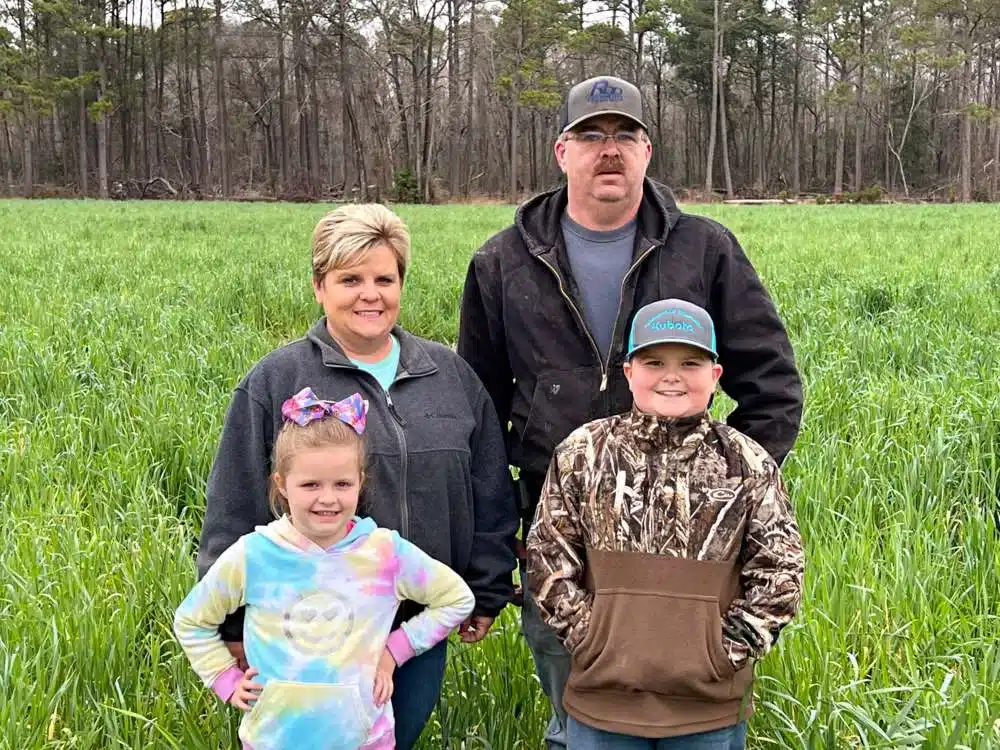
Farming runs deep in Adam’s blood. As the 10th generation to work the land at Dark Branch Farm, Adam’s roots in agriculture stretch back to the late 1700s. But while his family farm was built on tradition, Adam is proving that the future of farming doesn’t have to look like the past.
For over 200 years, the farm followed a conventional path—growing tobacco, raising livestock, and contract farming turkeys and hogs for big agribusiness. But after seeing firsthand the limitations of industrial farming—thin margins, environmental challenges, and little control over his own operation—Adam knew there had to be a better way.
That realization led him down a different path: regenerative agriculture.
Instead of chemical-heavy row cropping and confinement livestock, Adam transformed Dark Branch Farm into a thriving, pasture-based, multi-species operation. His pastured pigs, cattle, and heritage-breed livestock graze diverse cover crops, building soil health and restoring the land without relying on industrial inputs.
The switch wasn’t easy—Adam faced skepticism from neighbors, pressure from seed and fertilizer companies, and even doubts within his own family. But when a devastating flood from Hurricane Florence hit in 2018, washing out crops across the region, Adam saw something remarkable: his regeneratively managed fields rebounded faster than anyone else’s. That moment confirmed what he already suspected—healthy soil isn’t just good for the farm, it’s good for resilience, profitability, and the future.
Now, Adam is all in. He’s left behind industrial farming for good, helping other farmers transition to regenerative practices and proving that small, independent farms can thrive without the crutch of factory farming.
At Walden, we’re proud to partner with farmers like Adam—leaders who aren’t just keeping farming alive but making it better. His pastured pork and beef are raised with care, integrity, and a deep respect for the land. And if you’ve tasted it, you know—the difference is real.
Megan and Rob Wilcox, Edmeston NY
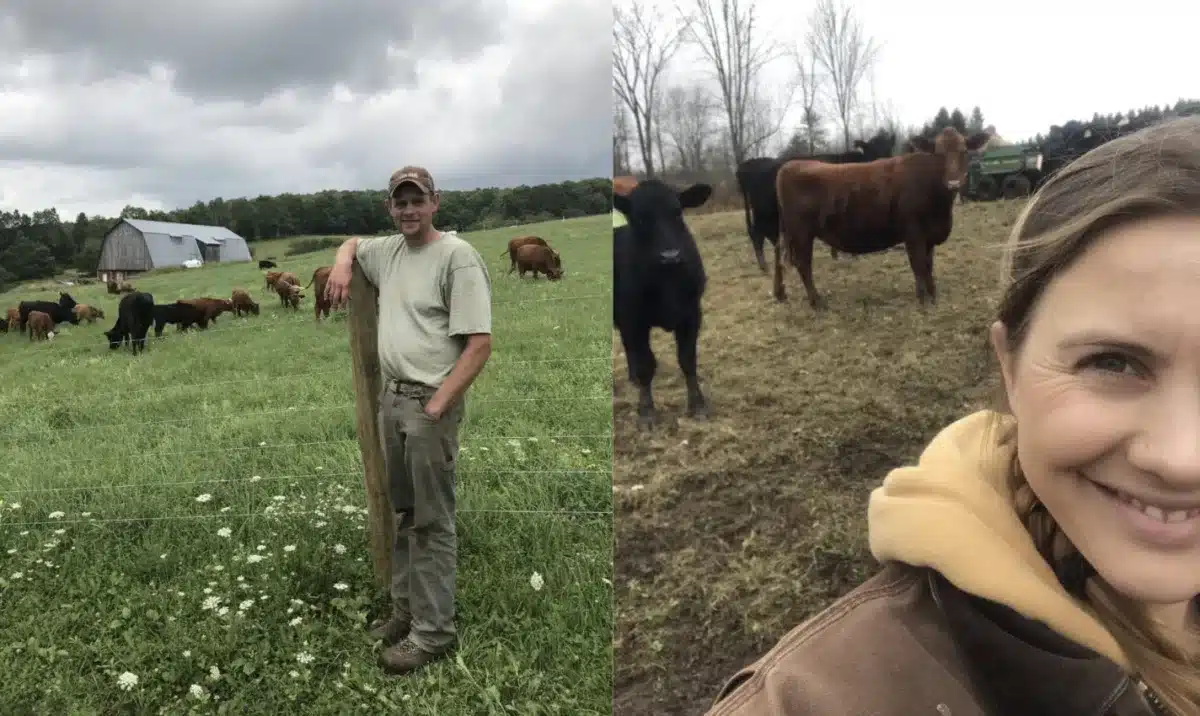
Meet Meg and Rob Wilcox—farmers to the core, with a lifelong love for raising animals and working the land. Farming isn’t just a job for them—it’s in their blood. Rob got his start young, raising dairy replacement heifers at just 11 years old, growing up around cattle, and selling Jersey bulls for years. Meg’s roots run just as deep—her family always raised their own hogs and chickens for eggs and meat. Together, they started their own dairy in 2010, and after selling it in 2020, they shifted their focus to raising and selling high-quality, pasture-raised meats directly to customers.
For the Wilcoxes, farming is about far more than production—it’s a way of life. The real reward isn’t financial; it’s in the rhythms of the farm. It’s the joy of seeing new calves hit the ground, ewes lambing in the spring, and watching animals thrive year after year. It’s knowing that every chick they raise lives a good life and, in turn, provides healthy, nourishing food for their community. And most importantly, it’s about sharing that connection to the land and animals with their children.
Their farm is home to a diverse mix of livestock, all raised with care and respect for both the animals and the environment. They raise Red and Black Angus, Hereford, and Charolais cattle, calving in the spring and rotationally grazing them to maintain healthy pastures. Their flock of Dorper and Katahdin sheep—hair sheep that don’t require shearing—also graze on pasture. They keep a small flock of laying hens for farm-fresh eggs and raise broiler chickens seasonally. Pasture-raised pigs round out their livestock, and when they’re not tending to their animals, they enjoy time with their four horses, which they sometimes use to move cattle.
Regenerative farming is at the heart of what they do. Every decision they make balances the health of the land, their animals, and the people who rely on their food. They practice rotational grazing, allowing pastures to recover naturally, and let their laying hens free-range around the barn. They aim for minimal tillage, with a long-term goal of transitioning to full no-till practices. Even where they winter cattle, they carefully replant to restore the soil. If a practice harms the land, the animals, or the quality of their food, they don’t do it.
This truly is a family-run farm, with Meg and Rob at the helm alongside their daughters, Beth and Kaye. Meg’s parents, Ann and Eric, are an integral part of the operation, and when extra hands are needed, Rob’s brothers, nieces, and nephews step in. They even have a dedicated team of five Guardian Dogs—loyal protectors who live with their sheep and chickens, keeping the flocks safe day and night. For the Wilcoxes, farming is a team effort, built on tradition, hard work, and a deep respect for the animals and land that sustain them.
Evans and Addison Hooks, Swainsboro, GA
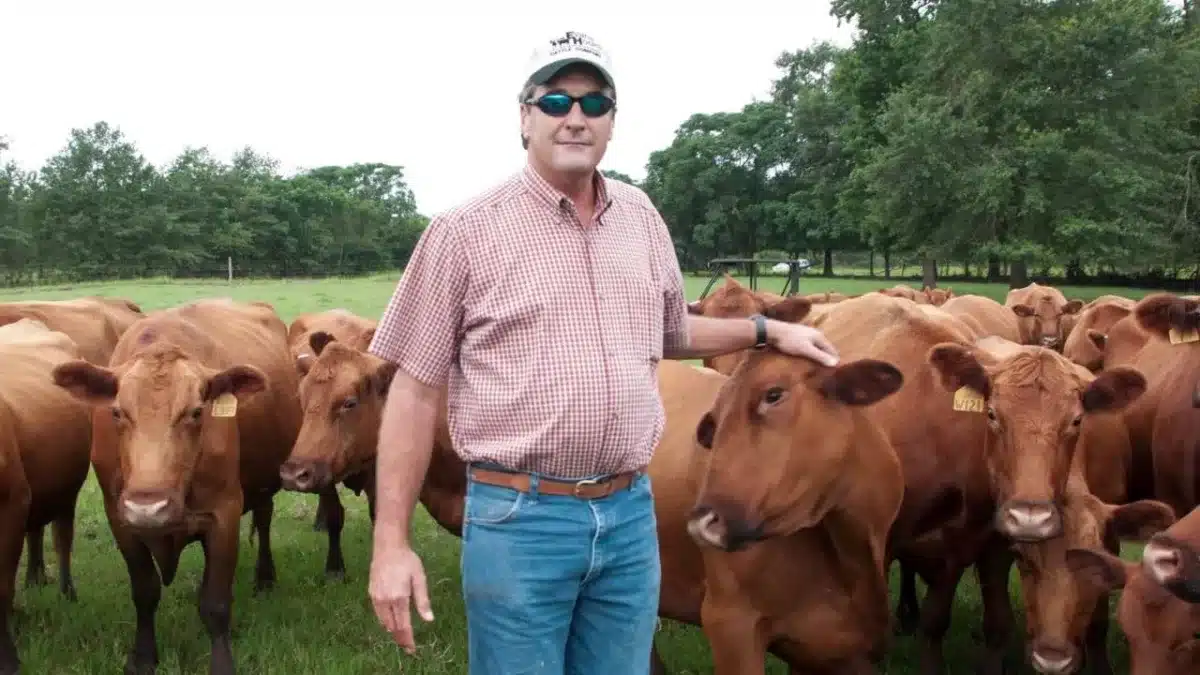
For Evans (above) and Addison Hooks, raising cattle isn’t just a way of life—it’s a continuous pursuit of better farming, better beef, and a better environment. Their fourth-generation farm in Swainsboro, Georgia, started in the 1930s by Addison’s great-grandfather, has become a regional leader in regenerative, grass-fed beef production—where tradition meets cutting-edge science.
Evans grew up on the farm but spent years in the corporate agricultural world before returning home to raise his family and push the business forward. His son, Addison, took a similar path—earning an agriculture degree from the University of Georgia before stepping into the family operation with a fresh perspective and a hunger to innovate.
Together, they lead the Evans Hooks Cattle Company, a regenerative farm that produces the highest-quality 100% grass-fed beef.
But the Hooks family isn’t just raising cattle—they’re redefining how it’s done. Working with experts at institutions like Auburn University, they’re at the forefront of research on livestock and grass genetics, grazing systems, and nutrition—all with the goal of producing healthier animals, higher yields, and a better environmental impact. By integrating advanced animal tracking and data-driven breeding programs, they ensure that every generation of cattle is more resilient, better adapted to pasture, producing exceptional beef after living an exceptional life.
For the Hooks family, regenerative farming isn’t about preserving the past—it’s about building the future. Their work proves that small, independent farmers can not only survive but thrive—leading the way in animal welfare, land stewardship, and soil regeneration, and raising the bar for what farming can be.
Jamie and Amy Ager, Fairview, NC
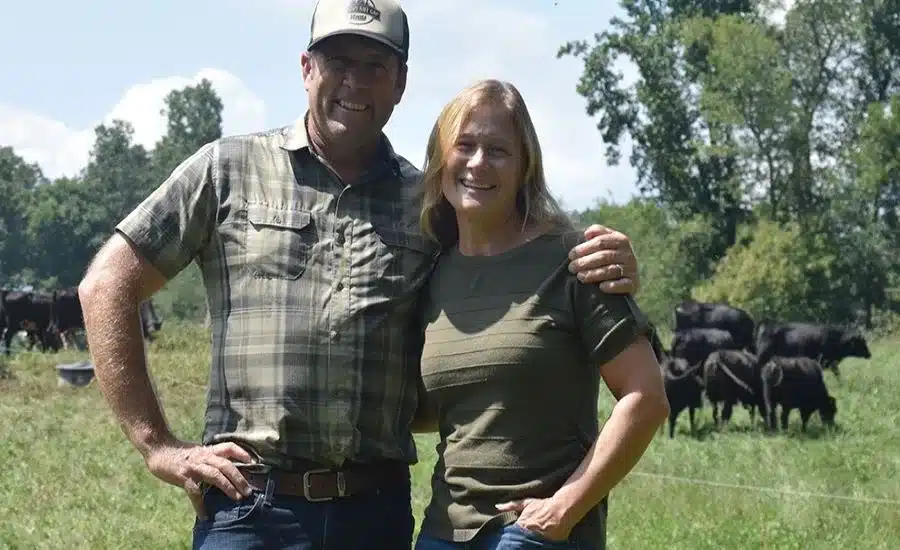
For Jamie and Amy, farming isn’t just about raising animals—it’s about building a better food system. As the fourth-generation steward of Hickory Nut Gap Farm, nestled in the Blue Ridge Mountains of North Carolina, Jamie is leading the charge in regenerative agriculture, proving that pasture-based farming can rebuild land, strengthen communities, and produce incredible food.
Hickory Nut Gap’s history runs deep. In the early 1900s, Jamie’s great-grandparents settled on this land, continuing a tradition that began centuries earlier when farmers drove cattle and hogs through the Appalachian foothills to market. A hundred years later, Jamie and his wife Amy have transformed the farm into a regional leader in 100% grass-fed beef and pasture-raised pork—not just as a producer, but as a hub for independent farmers who share their values.
Jamie understands firsthand that farming isn’t for the faint-hearted. It takes grit, adaptability, and a commitment to learning. When he took over the family farm, he realized that producing top-quality meat required consistency and reliability—things that small farms, on their own, struggle with. So he set out to create a network of like-minded farmers—one that ensures customers can access high-quality, pasture-raised meat year-round, while farmers get the support they need to thrive.
At the heart of Jamie’s philosophy is a true community model—where farmers, land, animals, and customers all win. He sees regenerative farming not as a marketing term, but as a real solution to rebuilding soil, sequestering carbon, and creating a thriving food system where agriculture works for everyone. And at Walden, we couldn’t agree more.
Same mission. More farmers. More impact.
We’re committed to the Northeast and it will continue to be our home. We are adding more regenerative farmers in the Northeast — and making these changes will enable us raise the bar and to work here even more effectively.
B Corp recertification isn’t just a stamp on our mission—it’s a challenge to push forward. To be bolder. To break the grip of factory farming and prove that small, independent farmers can feed us all, better.
We started by making regenerative work. Now, we’re making it thrive.
Related Posts

Winter Pastures and Southern Wisdom
Change starts with the farmers. Those who wake up every day and choose to do things the right way, not the easy way.
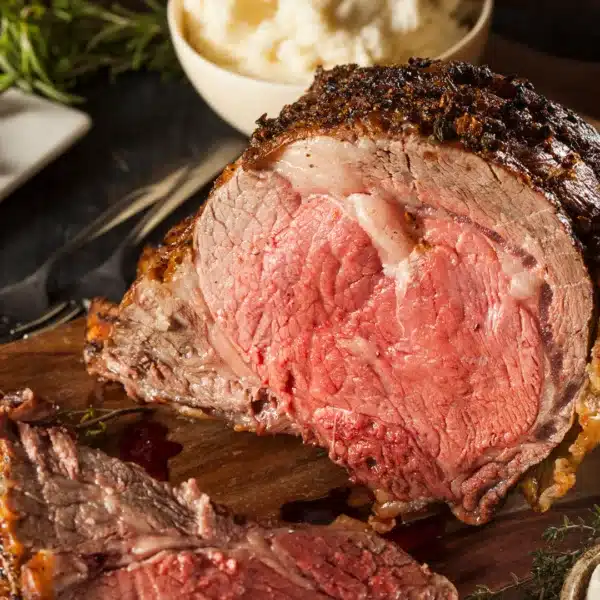
Spring Holiday Prime Rib with Potatoes
Spring holidays are coming, and that means good food and company—hopefully with a side of laughter (and some bickering over who gets the last roast potato).
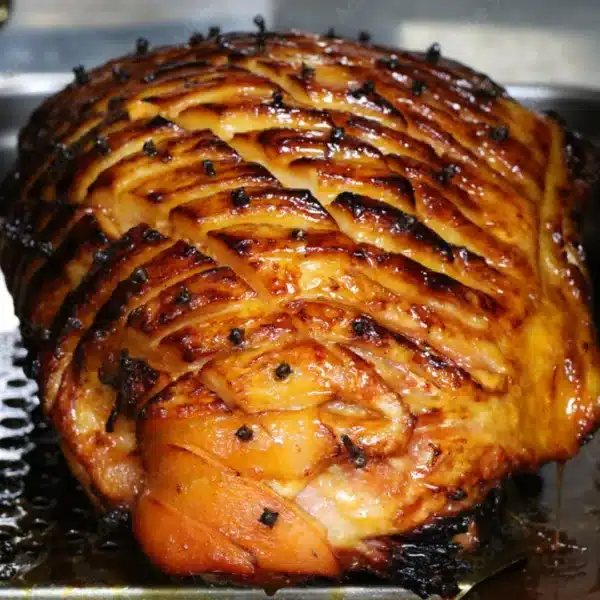
Spring Holiday Glazed Ham
Spring holidays are the perfect reason to bring families together for a meal full of good food and good memories. Now, we can’t promise there won’t be a fight for the crispy bits of ham, but we can promise everyone will love it.